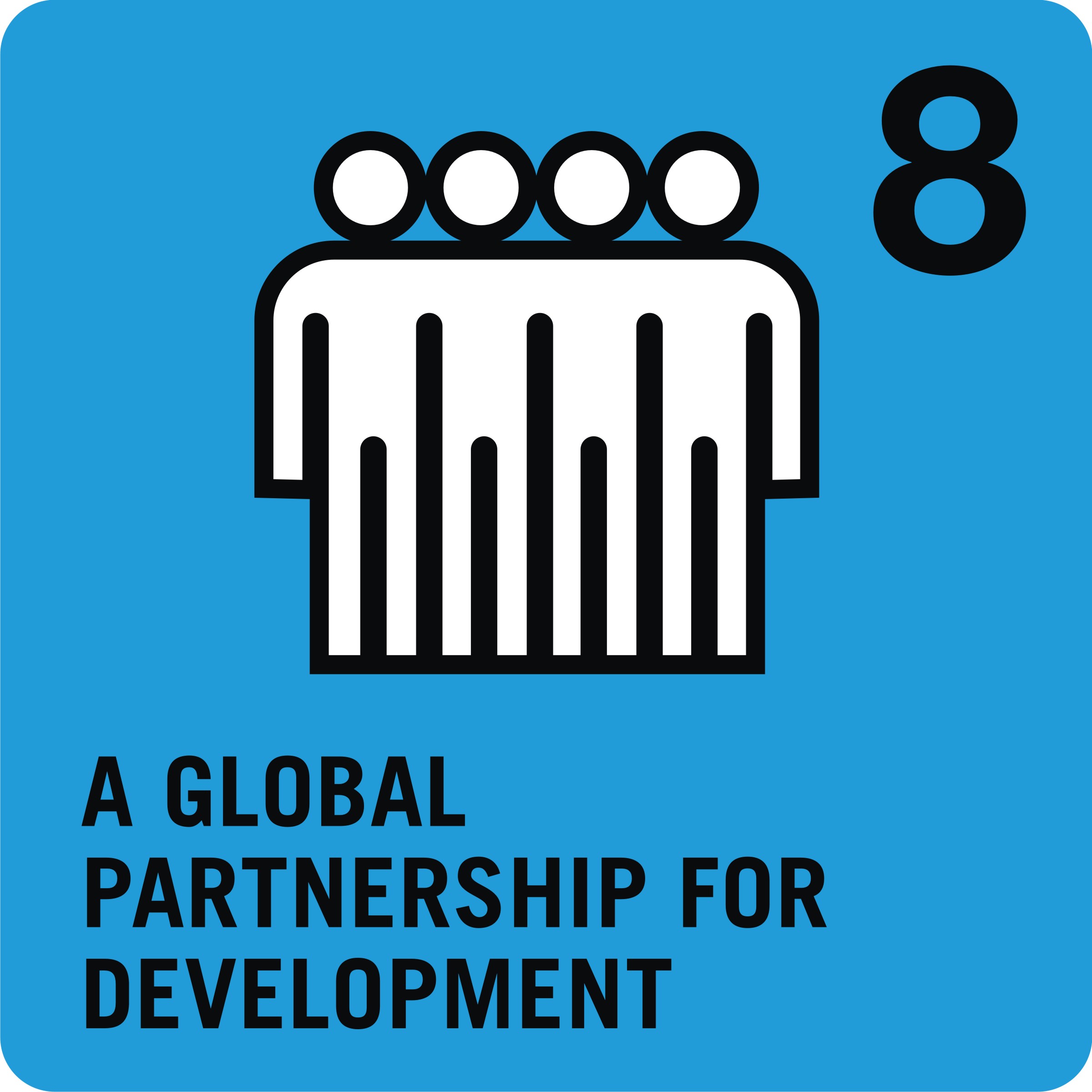Developing a global partnership for development.
|
Target 8.A: Develop further an open, rule-based, predictable, non-discriminatory trading and financial system. Target 8.B: Address the special needs of least developed countries. Target 8.C: Address the special needs of landlocked developing countries and small island developing states. Target 8.D: Deal comprehensively with the debt problems of developing countries. Target 8.E: In cooperation with pharmaceutical companies, provide access to affordable essential drugs in developing countries. Target 8.F: In cooperation with the private sector, make available benefits of new technologies, especially information and communications. |
|---|
The main ingredient
The structure of your baking system is deeply connected with the ability to develop a Global Partnership for Development. You can cook with fair trade products that would lead to the development of an open, rule-based, predictable, and non-discriminatory trading and financial system. A fair world system can motivate you to bake a comprehensive deal regarding the debt problems of developing countries. You can share opportunities for everyone (m)bake a better world by improving ODA and you can celebrate with the rest of the world by guaranteeing that the benefits of new technologies, especially information and communications technologies, are accessible by all!
In which stage are we in?
The recent economic and financial crisis had a terrible impact on the livelihood of millions of people. There is still too much to do in the financial system to improve the access of poor countries to markets. Aid to developing countries is at a record high, but very far from international commitments, and the weight of debt is still a burden for developing countries. Only a reform of the international economic, financial, and trade system can produce a significant improvement in the world financial architecture.
Regarding technologies, there is still a gap between developed and developing countries. The world is increasingly interconnected through mobile, high-speed communications, yet many people live in rural areas without access or are too poor to afford it. The new technologies can be applied in the development of successful poverty reduction strategies.
In the field of medicine, “it’s clear the existence of large gaps in the availability of medicines in both the public and private sectors, as well as a wide variation in prices which render essential medicines unaffordable to poor people”. (MDG report 2011) To improve the access to affordable drugs we need to strengthen close partnerships with pharmaceutical companies.
What to tell Young Modern Performers about this MDG?
The relations between global north and global south are not something that only lie in the hands of a few political leaders. In fact, much can be contributed on the personal level by YMPs (and anyone else). This is especially true for consumption patterns as YMPs set major trends in consumption. Very often they are the first to try out new products, and other groups in society follow that example. We can motivate YMPs to buy fair trade products, sustainable products, and products that have been produced with social certification. Thereby, YMPs can contribute to an increased demand for products that ensure decent working and living conditions for producers in the global south. We tried to promote sustainable shopping to YMPs in actions like distributing fair trade wristbands in clubs, showing fair trade coffee through a film clip, and offering napkins on fair trade in cafeterias.
